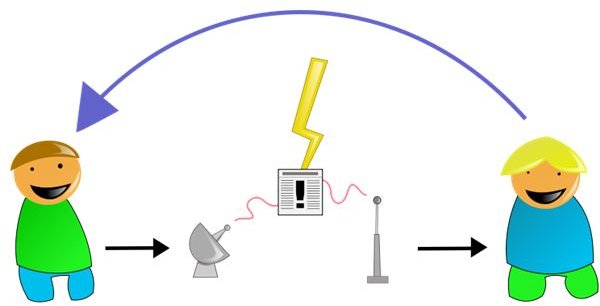How Important is Communication in Project Planning & Management
What is communication?
Before the importance of communication in project planning can be understood, communication itself needs to be understood.
Communication is more than just talking: people can speak or send written or electronic messages without communicating if no information is transferred. Similarly, the exchange of information may indeed be communication, but if the information is neither relevant nor appropriate, that communication can be useless. Important project information needs to be communicated effectively through available channels in ways that it is received and understood.
Effective communication is interactive and relies on verbal, nonverbal, written, subjective, and contextual components to transmit a message while relying on similar cues for feedback. In project planning, the absence of good communication leaves external and internal stakeholders wondering about the status of project related issues and often prompts the formation of invalid assumptions that can ultimately lead to conflict and project failure.
Image Credit: Wikimedia Commons/Doodledoo
The Importance of Communication to Project Planning
Communication must circulate through the project management team and external stakeholders to maintain the health and the viability of the project. The existence of a documented communication plan does not by itself guarantee good communication during the project planning stage. Attention must be given to the type of information that is required at each level of the project and take steps to make sure that information is freely transmitted. As insufficient information can lead to faulty assumptions, too much information (or irrelevant information) can easily overload stakeholders, eventually causing them to “tune out” further communication attempts.
The information available to the planners will determine the quality of the project plan. Therefore, any information that will impact the quality, time, scope, risk, or expectations of a project must be communicated to stakeholders to improve the accuracy of the planning process. Similarly, communication from the stakeholders must flow freely so that any issues with capacity or specifications can be addressed during the planning stage.
Steps to Better Communication
Depending on the scale of the project, the project manager may need to spend some time laying the ground rules for meetings and other communications and could possibly arrange for some communication skills training. Even when time seems limited, managers should consider the time spent on establishing good communication within the team as an investment in its success.
Project managers should be mindful of any cultural differences among team members and other stakeholders that could result in miscommunication. Modern business requires multicultural competency at every level, including project planning, to avoid costly errors in planning. Diverse teams may benefit from spending some time developing cultural awareness in effort to improve communication.
An essential starting point for communication is the development of an effective communication plan that defines the information needs of each stakeholder, who will communicate that information, and how it will be communicated. Stakeholders must be encouraged to verbalize their concerns should they feel that communication is inadequate, and the project manager should have a proactive plan in place to monitor for signs of communication problems.
How Important is Communication in Project Planning?
Project planning must include accurate information concerning the project from every stakeholder to avoid programming flaws into the project from its beginning. An awareness of the requirements of the project, the capabilities of team members, and the resources available will go a long way to the development of a viable project plan that will deliver its desired outcome.
